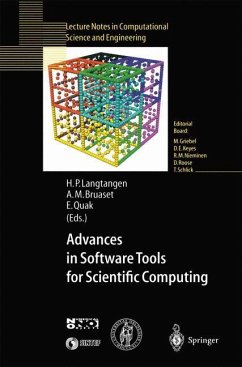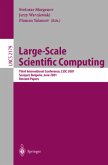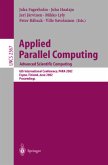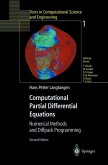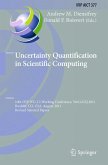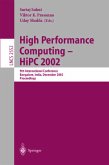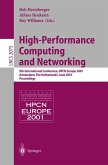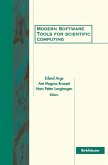This book concerns programming techniques like object-oriented programming and generic (template) programming. These modern techniques have proven to increase flexibility, modularization, code reuse and improve maintenance of large numerical codes. The book contains 11 refereed and comprehensive chapters on major subjects in computational science and engineering: quality measurement of numerical software, high-performance numerical computations with C++ without sacrificing efficiency, a balanced discussion of Java in scientific computing, object-oriented design of direct sparse solvers, geometric kernels in geographical information systems, and tools for error estimation in finite element methods, tools for validating computational results, and how to simplify the implementation of highly complex mathematical model for material processing.
To make full use of the ever increasing hardware capabilities of modern com puters, it is necessary to speedily enhance the performance and reliability of the software as well, and often without having a suitable mathematical theory readily available. In the handling of more and more complex real-life numerical problems in all sorts of applications, a modern object-oriented de sign and implementation of software tools has become a crucial component. The considerable challenges posed by the demand for efficient object-oriented software in all areas of scientific computing make it necessary to exchange ideas and experiences from as many different sources as possible. Motivated by the success of the first meeting of this kind in Norway in 1996, we decided to organize another International Workshop on Modern Software Tools for Scientific Computing, often referred to as SciTools'98. This workshop took place in Oslo, Norway, September 14-16, 1998. The ob jective was again to provide anopen forum for exchange and discussion of modern, state-of-the-art software techniques applied to challenging numerical problems. The organization was undertaken jointly by the research institute SINTEF Applied Mathematics, the Departments of Mathematics and Infor matics at the University of Oslo, and the company Numerical Objects AS.
To make full use of the ever increasing hardware capabilities of modern com puters, it is necessary to speedily enhance the performance and reliability of the software as well, and often without having a suitable mathematical theory readily available. In the handling of more and more complex real-life numerical problems in all sorts of applications, a modern object-oriented de sign and implementation of software tools has become a crucial component. The considerable challenges posed by the demand for efficient object-oriented software in all areas of scientific computing make it necessary to exchange ideas and experiences from as many different sources as possible. Motivated by the success of the first meeting of this kind in Norway in 1996, we decided to organize another International Workshop on Modern Software Tools for Scientific Computing, often referred to as SciTools'98. This workshop took place in Oslo, Norway, September 14-16, 1998. The ob jective was again to provide anopen forum for exchange and discussion of modern, state-of-the-art software techniques applied to challenging numerical problems. The organization was undertaken jointly by the research institute SINTEF Applied Mathematics, the Departments of Mathematics and Infor matics at the University of Oslo, and the company Numerical Objects AS.

